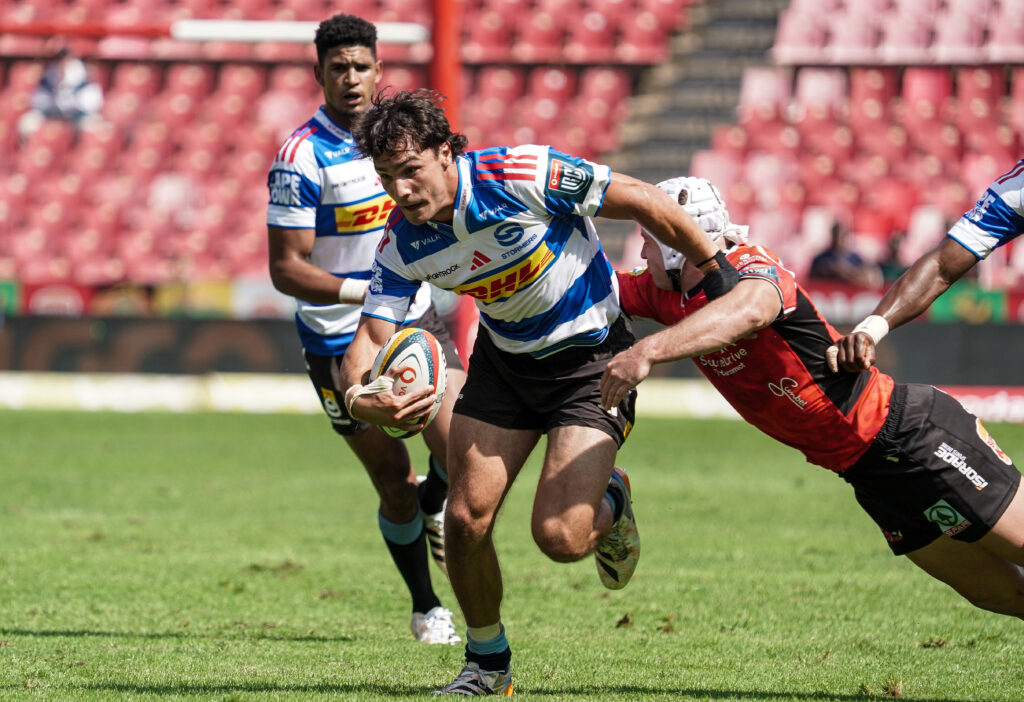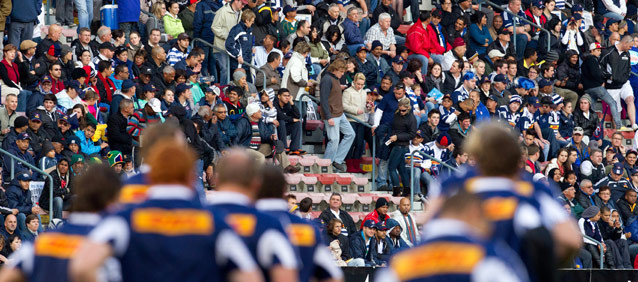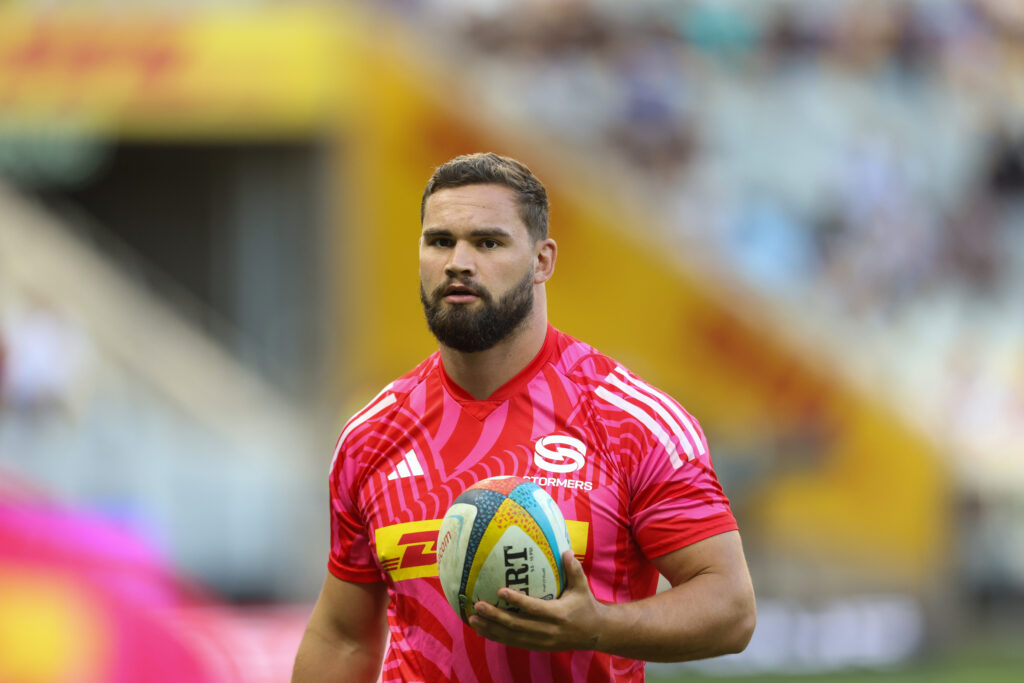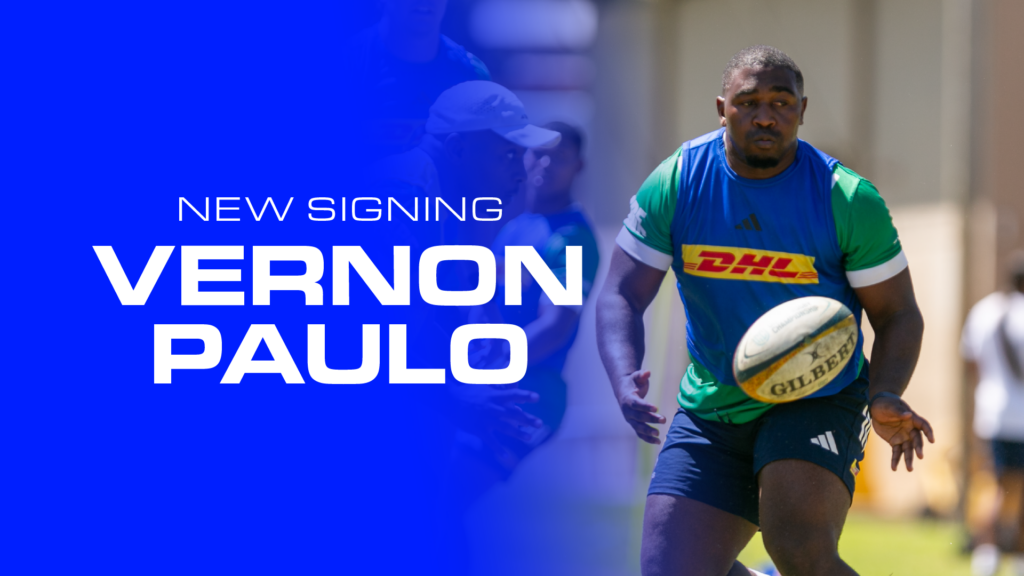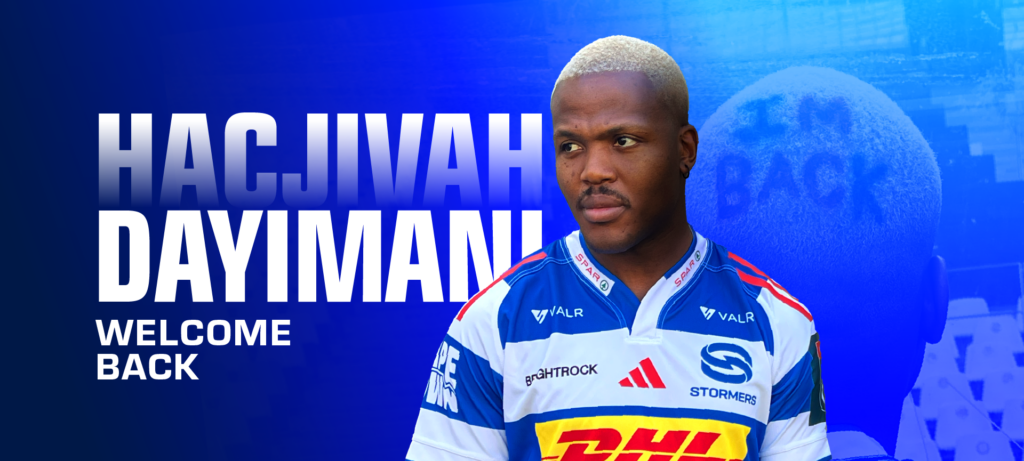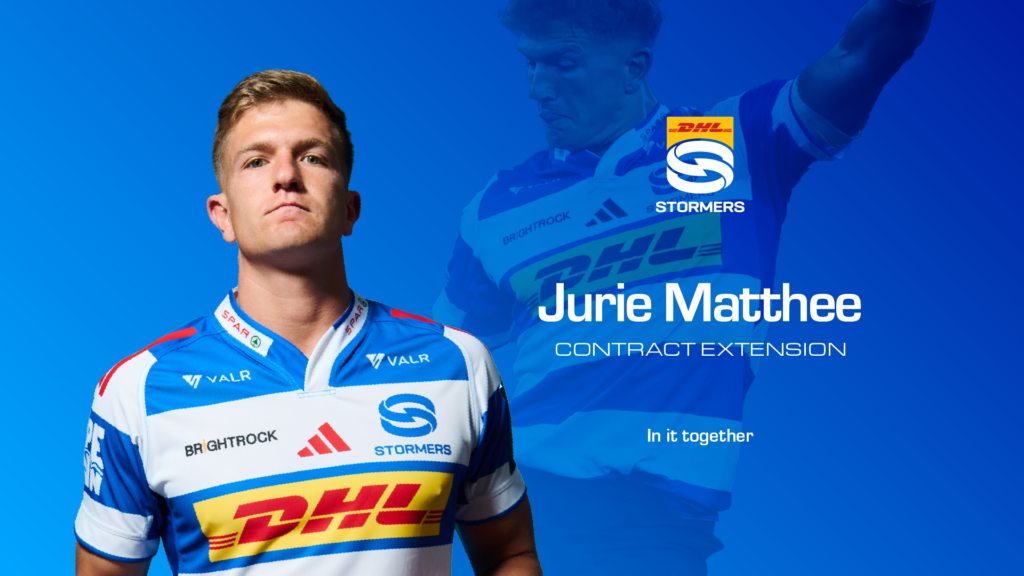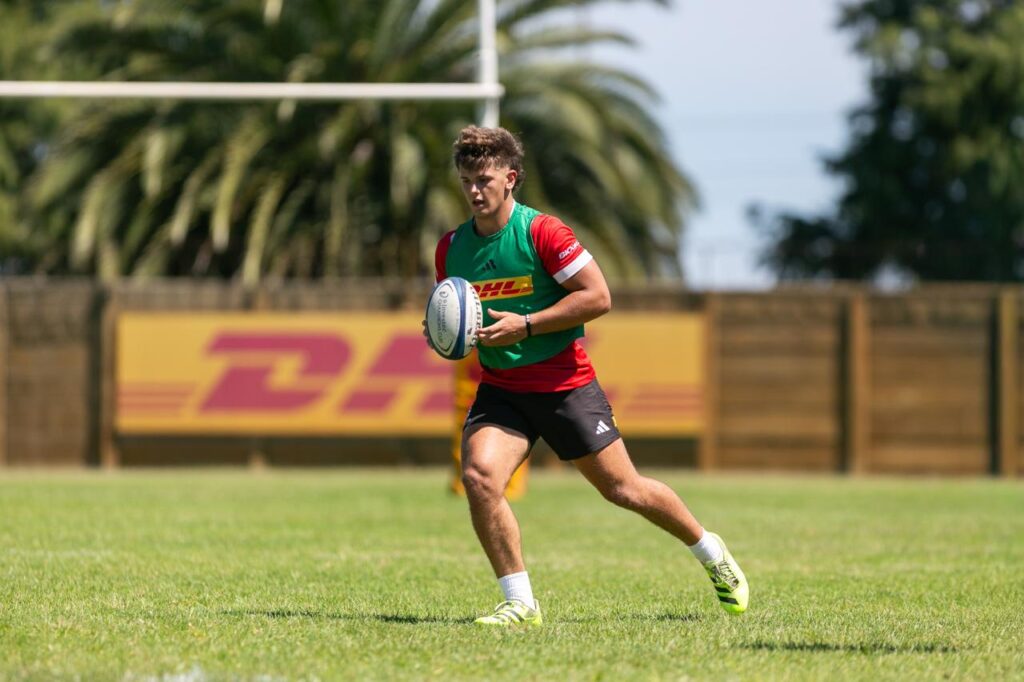Grant had been away in Japan for eight months since he last was part of the Cape team, and in that time he struggled to get to watch any of the games played by his team-mates in their domestic season guise as Western Province in the Absa Currie Cup.
It was very hard to keep in touch with what was going on, certainly as far as actually watching the games was concerned,’ says Grant.
‘I eventually got to watch one game, and it wasn’t even a semi-final or anything like that. There wasn’t anything on TV over there, and apart from having to battle to find a website that would be screening them, the games took place at three in the morning in Japan.
‘So yes, it did add to the feeling of being out of my depth when I arrived back in the week of the Lions game. I felt like I had been in a vacuum and had so much to catch up on. I struggled in my first few training sessions back – quite a few things have changed.’
However, Grant has been pleased with how quickly he picked it all up again and by the week of the Toyota Cheetahs match – his first start since his return from his stint with the Kobe Steelers – he was confident that he was fitting back into the DHL Stormers pattern like a hand into a glove.
‘What helped is that I knew the players and the systems. There haven’t been any coaching changes, so it wasn’t like I was arriving in an environment where I didn’t know what was expected of me,’ says Grant. ‘The time I spent on the field in the match against the Lions helped immensely, particularly as I went in at a critical stage of the game and we came through to win it.
I fitted into the game we were playing, I never made any mistakes, and I got my place kicks, which is obviously going to be a big responsibility that I will be carrying this year.’
Joe Pietersen was the first choice place-kicker for most of the 2010 Vodacom Super 14, but he has since departed for France. Grant is happy to take on the pressure of knowing that he is the frontline kicker again, a role that he filled for several seasons before Pietersen stepped in and took ownership during a period when the flyhalf was out injured.
‘There isn’t much back-up, at least not among the players in the starting team, although I was happy to hear Conrad Jantjes tell me when I first got back that he had been practising hard and was confident he could kick if he is needed,’ he says.
‘Taking the goal kicks is not something that scares me; it is a challenge that I embrace and which I have been taking on most of my career. I was frontline kicker for my team in Japan and it went well.’
Still, the pressure that a player faces during a match in Japan isn’t quite the same as here in South Africa, and it would have felt like a new experience for Grant when he stepped up to kick a crucial penalty and then a difficult angled conversion of the winning try in the game against the Lions.
‘In Japanese rugby the maximum crowd you get is 12 000, and this year it was often a lot less than that as the Japanese are doing what we are trying to do in South Africa by spreading the game to the more remote areas through the Vodacom Cup.
‘That experience made me really appreciate what I was coming back to. Playing in front of a crowd in excess of 30 000 makes it a special experience. It was exciting being back in front of a big crowd against the Lions and Cheetahs.’
That is not to say that Grant didn’t enjoy his time in Japan, and he will be going back to the Kobe Steelers at the conclusion of Super Rugby in July.
‘I signed a two-year deal with them. It means I’ll miss the Currie Cup again, but I have an agreement with the Steelers that if I’m selected to play for the Springboks in the World Cup, they will release me.
‘Being able to play overseas while still being available to play for the Boks was one of the reasons I chose Japan. Like all players I would love to play at the World Cup.
‘But I also realise that for me to do that there is quite a battle ahead, and the immediate priority is to do well with the Stormers. I love playing for the Stormers, I love the Cape rugby environment, and after last year I’m as hungry as the rest of my team-mates to win a trophy.’ Playing in Japan was a good experience for Grant and he achieved his primary objective, which was to prevent himself from becoming stale.
‘I have reached a stage of my career where you can become stagnant if you don’t take on new challenges. The offer to go to Japan arrived at a time when I felt I needed a new challenge, something to refresh me, and my time in Japan has done that.
‘The rugby over there is very different. It’s not as physical, and to understand why that is the case you just need to look at pictures of me standing with my team-mates in the huddle during the games. Over there I am one of the taller buildings, whereas when I returned to the Stormers and stood in the huddle I was reminded that I am not tall by South African rugby standards.’
But while the rugby may be less physical in Japan, Grant says it does not lack for pace, and he has returned to Cape Town feeling that he has learnt something from the experience of playing there.
‘There is a lot of unstructured rugby over there as the teams are encouraged not to keep the ball in the loose scrums for any length of time. In that sense it was a good experience for me,’ says Grant.
The DHL Stormers flyhalf played more games in Japan than he intended to because one of the other key foreign players in the squad – each team can only field three foreigners at any one time – was out injured. However, the way the matches are spaced out over there meant that although he has been playing for the past eight months, he hasn’t been too physically or mentally taxed.
‘Playing in Japan has helped me in the sense that the schedule and the type of rugby played does not take as much of a toll on your body as it does here,’ says Grant.
‘It was a bit difficult at first when I arrived in Japan, and obviously the biggest obstacle was communication. Fortunately, though, there were a few positional changes that helped me – I started off with a No 12 playing alongside me who was extremely quiet, but then he was moved and I was playing alongside an inside centre who was a really great communicator.
‘There were a lot of hand signals, which are fairly universal, and in time I started to pick up a few Japanese words which helped me. Even just picking up a little bit of the lingo can make a huge difference.’- Matchday Programme: Gavin Rich
